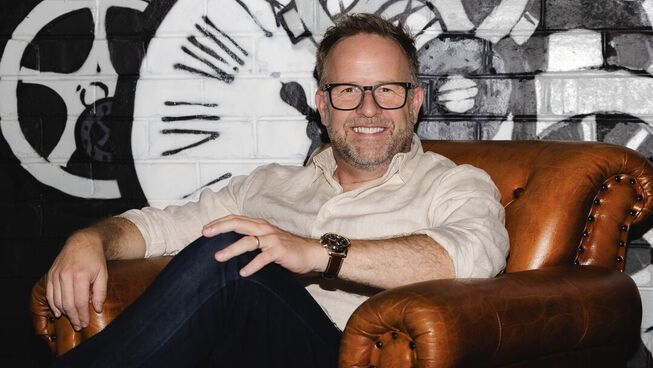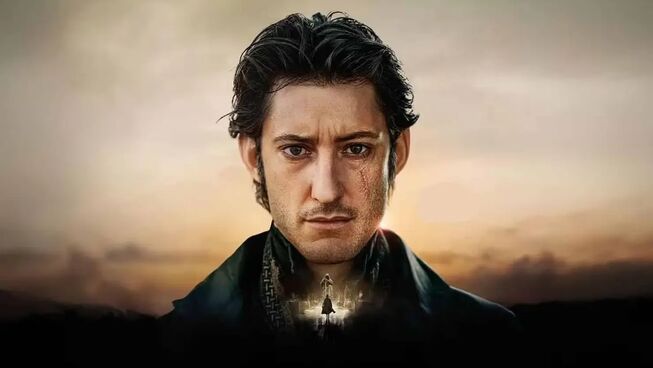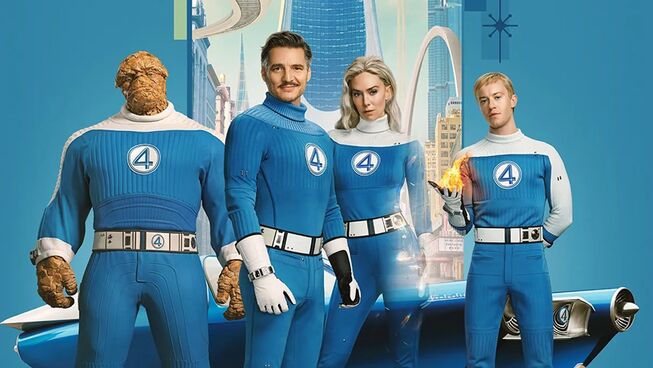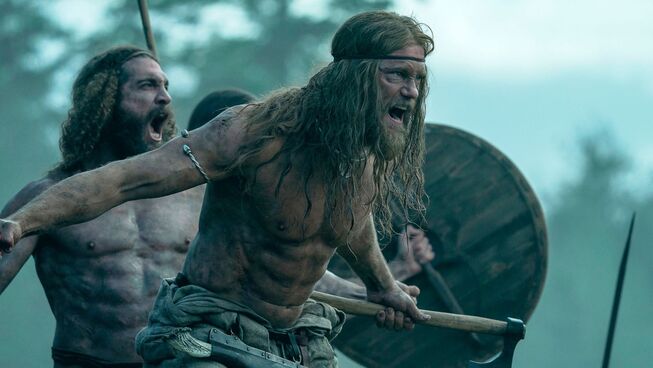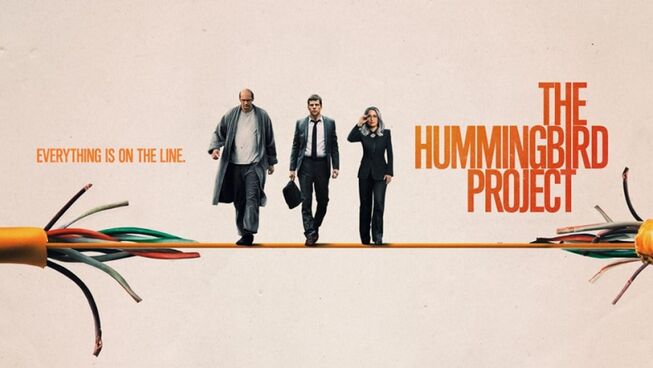Infinity Pool
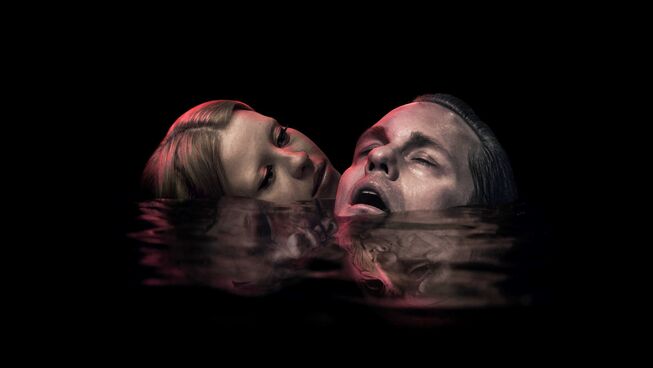
2 out of 5 stars
As the years progress at Reel Dialogue, certain films push the limits of artistry and explore deeply unpleasant themes. Yet, the subject matter of the screenplays unpacks some of humanity's deepest questions of life, death, morality, and existence that force us to write about the film. Legendary filmmaker, David Cronenberg (The Fly, The History of Violence), passes on his unnerving creative style to his son Brandon who rips open the considerations of the human condition in Infinity Pool.
His story draws us into the world of the uber elite who spend their time holidaying in the all-inclusive resort island of La Tolqa. James (Alexander Skarsgård) and Em (Cleopatra Coleman) Foster are trying to find themselves and save their marriage as they escape into this decadent world. Until they meet Gabi (Mia Goth) and Alban (Jalil Lespert) Bauer who claim to be fans of James’ writings and invite them on an escape off of the protected property for a picnic on the beach. As they return to the resort late in the evening, the writer hits a local pedestrian and is eventually sentenced to death. Still, there is a unique option in this underdeveloped country regarding sentencing. If the perpetrator of the crime is willing to pay the applicable fee, they can be cloned. Then this allows the duplicate to bear the brunt of the punishment as the original person watches. The couple decides to pay the price and is given their freedom, except James chooses to stay longer since he has been given a new lease on life.
After his wife leaves the island, this choice leads to the author having no accountability. If he has enough money, someone else will pay the consequences of his actions. Initially, this apparent immunity to any justice takes him down paths of debauchery and abhorrent actions that usually finish with him observing his death or at least of his clone. That is until he realises that the group that James has been working alongside in these actions turned their attention to causing him harm. What initially looks like an unleashing of personal power turns quickly into a powerlessness that becomes an individualistic hell.
Brandon Cronenberg’s talent is undeniable, and this narrative's visual elements unmask a well-crafted skill that his father passed down. Still, along with these abilities come a storytelling style that is utterly unnerving and inaccessible to mainstream audiences. Even though the story nods towards Old Testament examples of how far people will go if they think there are no repercussions for their actions. Like their roles in The Northman and The Cure for Wellness, Alexander Skarsgård and Mia Goth commit to their characters. Both actors put in compelling performances, despite being exceptionally unappealing on all levels.
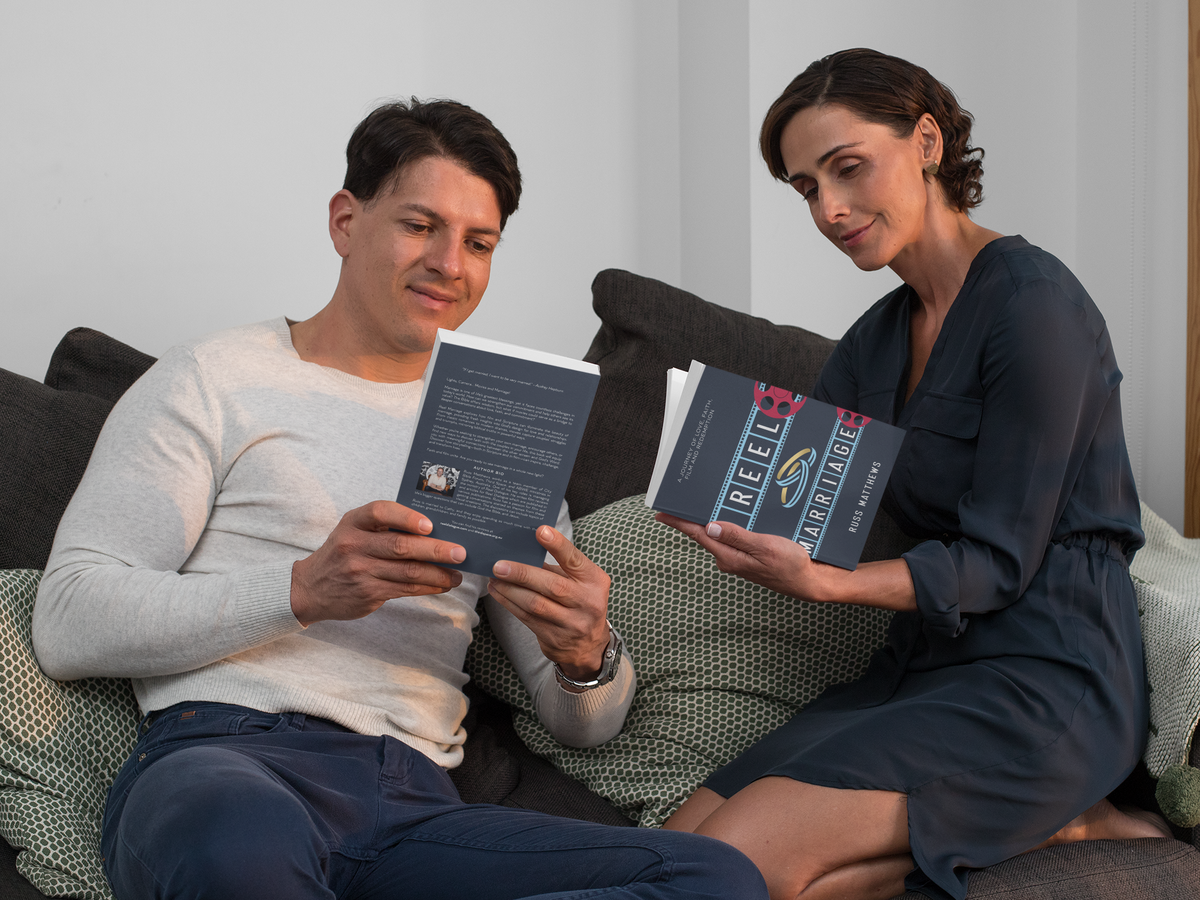
Reel Marriage
Lights, Camera... Movies and Marriage!
Marriage is one of life’s greatest blessings, yet it faces countless challenges in today’s world. How can we strengthen our commitment and help others see its value? The Bible offers wisdom, but what if movies could serve as a bridge to deeper conversations about love, faith, and commitment?
Reel Marriage explores how film and Scripture can illuminate the beauty of marriage, providing fresh insights into God’s design for love and relationships. From classic romances to modern dramas, movies capture couples' struggles and triumphs, mirroring biblical truths in powerful ways.
Faith and film unite. Are you ready to see marriage in a whole new light?
If you order your copy today you will also receive a complementary handbook that is only available with the purchase of the book (Print or ebook)
As a discussion point, the question that needs to be asked of the audience is how far would you go if you had no accountability in life? Based on this journey into a hellacious existence, most humans would choose to do any and all things that would be repellent to society. Yet, it shows that no one can decide to do these things and not be affected somehow.
This opens the door to many considerations, but let’s discuss personal accountability. The root of the word account is ‘a report or description of an event or experience (Oxford).’ Simply, to be accountable means people can give an account of their actions in whatever situation they find themselves in.
This is true in most scenarios during this lifetime, from work to relationships, but what is personal accountability? This opens the door to a biblical view of this topic, as we can read that everyone must give a personal account to God.
Romans 14:12 – Yes, each of us will give a personal account to God.
In the simplest of terms, it means we have to answer to God for all we do in our own lives, not for other’s lives, merely our own. That opens the door to personal accountability and leaves us with a decision. Will we choose to accept it or not? Something that no one will be able to escape in the end.
